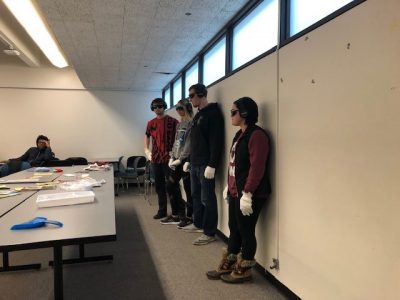
My husband and I have made the decision to right-size our lives and sell our house of 23 years. For many years now, I have anticipated this moment wondering how I would feel. Surprisingly, it wasn’t a hard decision to make. However, I recognize that moving day could be a different story.
The decision to relocate is one we made being of sound mind and body. As overwhelmed as I sometimes feel about our move, it must pale in comparison to what people with dementia feel when they are moved to a different environment.
Easing the Trauma of Relocation
My husband and I will adapt to our new surroundings. I will find a place for all of our things and make our new house into our home. The people I love most will be with me, including my fur-babies. I’ll drive to visit my friends and attend the same church. All will be right in our world.
This mile-marker in my life makes me think long and hard about what moving day must be like for someone with dementia. I can’t even imagine. The sudden loss of leaving the familiar and the people you love must be horrifying.
Stop and think for a moment how you would feel if someone walked into your home and said that you had to leave for a new place that you had not chosen for yourself.
Imagine your behavior. Would you be crying, screaming, punching, kicking?
The AGE-u-cate Training Institute program Compassionate Touch begins with looking at life through the lens of someone with dementia. We discuss the grief and loss that often accompanies a person with dementia when they move into a long term care facility.
Realizing that people with dementia communicate with us through their behaviors is a pivotal moment in Compassionate Touch and Dementia Live Training.
So how can we ease a transition into a long term care facility for someone with dementia? Here are a few tips:
-
- If possible, set up their new space with familiar items prior to move-in day.
- Remain positive and keep your personal emotions in check.
- Minimize chaos on move-in day by limiting the number of family members present to no more than two.
- Allow the staff to immediately begin bonding with your loved one.
- Refrain from prolonged day-long visits until your loved one is settled in and comfortable.
- When your loved one says, “Take me home” don’t say, “this is your new home.” Rather, “I understand how hard this is, and I love you.”
 Julie has worked in Aging Services for over 30 years and has been a Licensed Nursing Home Administrator since 1990. She is a Certified Master Trainer with the AGE-u-cate Training Institute. Through her company Enlighten Eldercare, Julie provides training and educational programs on elder caregiving for family and professional caregivers. In addition, she is an instructor and the Interim Director of Gerontology at Northern Illinois University and lives in the Chicago Northwest Suburb of Mount Prospect, IL.
Julie has worked in Aging Services for over 30 years and has been a Licensed Nursing Home Administrator since 1990. She is a Certified Master Trainer with the AGE-u-cate Training Institute. Through her company Enlighten Eldercare, Julie provides training and educational programs on elder caregiving for family and professional caregivers. In addition, she is an instructor and the Interim Director of Gerontology at Northern Illinois University and lives in the Chicago Northwest Suburb of Mount Prospect, IL.


